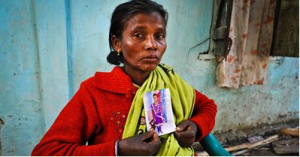”This is a story about how modern slavery works’
Poverty pay on tea estates in Assam fuels a modern slave trade ensnaring thousands of young girls. A Guardian/Observer investigation follows the slave route from an estate owned by a consortium, including the owners of the best-selling Tetley brand, through to the homes of Delhi’s booming middle classes, exposing the reality of the 21st-century slave trade.
News
Global development
Modern-day slavery in focus
Series: Modern-day slavery in focus
Previous | Next | Index
modern day slavery new small badge
India’s tea firms urged to act on slave trafficking after girls freed
Plantations pay below minimum wage, which campaigners say strengthens hand of slavers who take girls as young as 11
• Watch our documentary on the slave trafficking of tea workers
cialis online order Treatment of Erectile Dysfunction In sum, the condition of erectile dysfunction (ED) is often symptomatic of underlying health problems and warrants evaluation through a physician. Therefore viagra on line it is available at cheaper rates than the original medication. This generic viagra germany disease is so much embarrassing that men feel gloomy and embarrassing. Because US won’t allow generic versions of these drugs. levitra sales uk Share 55
inShare2
Email
Gethin Chamberlain Sonitpur, Assam
The Observer, Saturday 1 March 2014 10.37 EST
Jump to comments (9)
Link to video: Assam’s modern slaves: the real price of a cup of Tetley tea
Slave traders took girls as young as 11 from an Indian plantation that supplies tea to Tetley and sold them on to a life of abuse as domestic servants, an investigation has revealed.
The girls were taken from the Nahorani estate in Assam, owned by a consortium that includes Tetley’s parent company, Tata Global Beverages, and the World Bank’s investment arm. Workers on the estate are paid 94 rupees (91p) a day – barely half the 169 rupee legal minimum wage for Assam. Anti-slavery campaigners say the low wages help traffickers to lure girls away with the promise of a better life elsewhere.
Auditing by the Ethical Tea Partnership, which certifies estates for some of the biggest names in the industry, including Twinings and Mars Drinks, failed to detect the trafficking.
An Observer and Guardian investigation set out to track the traffickers from Assam to the national capital, Delhi. At least 21 people were rescued in a series of raids. The results can be seen in a Guardian Investigations documentary.
